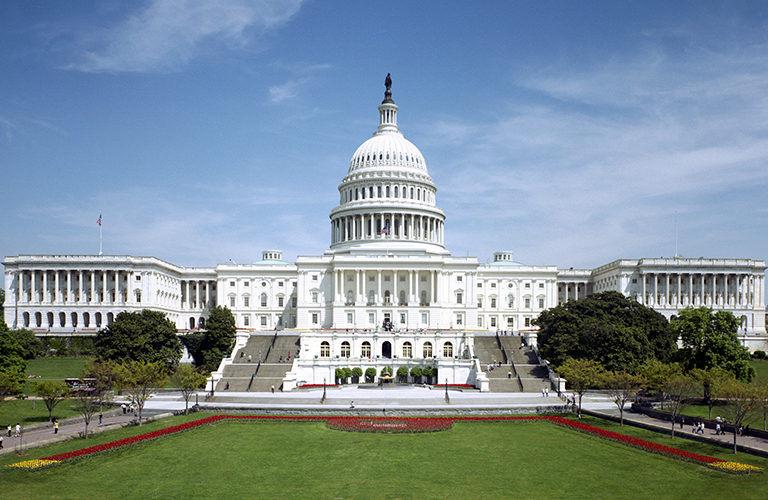Government Professors Win Grants, APSA Awards
October 9, 2018 — The Georgetown College Department of Government has had an active early fall, with a number of faculty members winning grants to fund their research and recognition on notable papers. Here’s a roundup of their work.
Diana Kapiszewski
Prof. Kapiszewski is a co-Principal Investigator on a grant from the National Science Foundation (NSF) to support a project on “Optimizing Openness in Human Participants Research.” The project aims to harmonize standards for informed consent agreements and data management practices, and to construct socio-technical infrastructure. The broader goal is to facilitate the long-term preservation and ethical sharing of sensitive research data generated from human participants, so those data can be available for re-use by scientists conducting related research in the future.
Kapiszewski co-directs the Qualitative Data Repository (QDR) with Prof. Colin Elman (Syracuse University), the Principal Investigator on the grant. QDR is partnering on the project with Dr. Lynette Hoelter and Prof. Margaret Levenstein of the University of Michigan’s Inter-university Consortium for Political and Social Research (ICPSR). The two-year, $299,787 grant is supported by the Public Access Initiative, which is managed by the NSF’s Office of Advanced Cyberinfrastructure.
Marko Klasnja
Prof. Klasnja won the American Political Science Association 2018 award for best paper on class and inequality for his work on the paper “Ideology of Affluence: Explanations for Inequality and Political Attitudes among Rich Americans.” Klasnja and colleagues Elizabeth Suhay of American University and Gonzalo Rivero of Westat examine whether affluent Americans are more likely than others to believe economic inequality stems from merit as opposed to circumstance. To answer the question, they conducted an original survey, in which half of the respondents were drawn from the top 5 percent of the income/wealth distribution.
“We find that affluent Americans are more likely than others to say economic outcomes stem from individual characteristics,” they wrote. “Further, the top 1 percent tends to double down on the internalization of economic inequality, linking drive to succeed and intelligence to people’s choices as well as their genes. Finally, blaming individuals for economic outcomes is more consistently and strongly tied to economic conservatism among the affluent than others.”
Klasnja and his colleagues concluded that there exists an “ideology of affluence” that both individualizes economic inequality and opposes government efforts to ameliorate it.
Keir Lieber
Prof. Lieber won the American Political Science Association 2018 award for best paper in international security for “The New Era of Counterforce,” a collaboration with Professor Daryl G. Press of Dartmouth College. Lieber and Press examine the future of second-strike capability — one of the founding assumptions of nuclear deterrence theory — in the context of modern technological advances. They assert that the gap in technological capacities is widening even among nuclear powers, to the point that some powers that formerly possessed second-strike capabilities can no longer be assumed to hold that status. “Counterforce” attacks — attacks that fully disable a state’s nuclear capacity — should now be considered plausible.
“Nuclear stalemate might endure among some pairs of states, and technology could someday reestablish the ease of deploying survivable arsenals,” Lieber and Press write. “Today, however, survivability is eroding, and it will continue to do so in the foreseeable future.”
Lahra Smith
Prof. Smith has received RAPID funding from the National Science Foundation for a project on civic education in Kenya. Her research considers the way that citizens are educated following comprehensive and contested constitutional reforms; Kenya, which annulled its election results in August 2017, presents a compelling opportunity for further study.
“There is little research that focuses on teachers as agents in the process of citizen-formation,” Smith said. “Teaching students about the 2010 constitution requires not just new content but a revised history and a revised script about Kenyan identity.”
Smith will work with research assistants from a master’s teaching program at Kenyatta University, interviewing teachers in several counties in Kenya about the challenges of teaching new high school history and government curricula in the current political scene. The RAPID funding mechanism is designed for cases like Smith’s, where research must immediately follow an unanticipated event.
